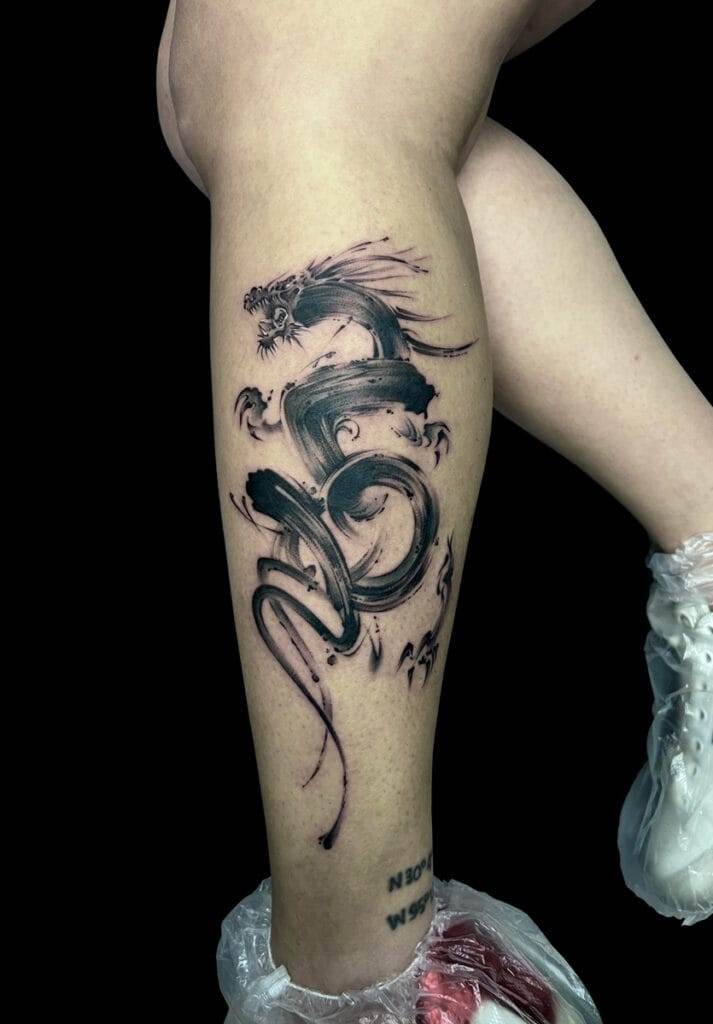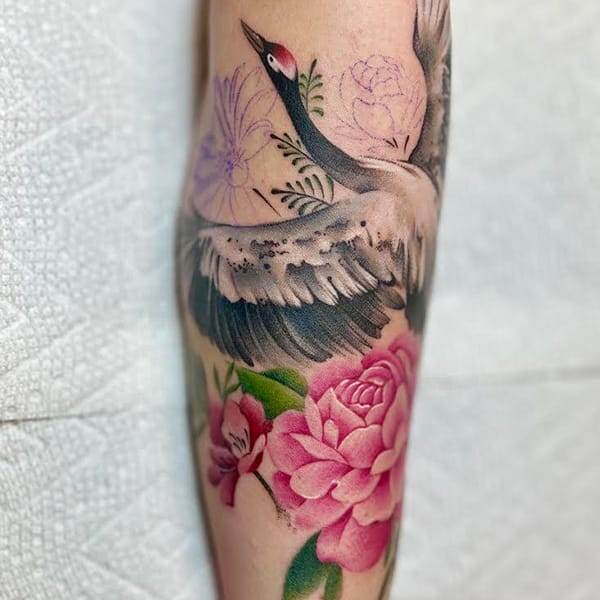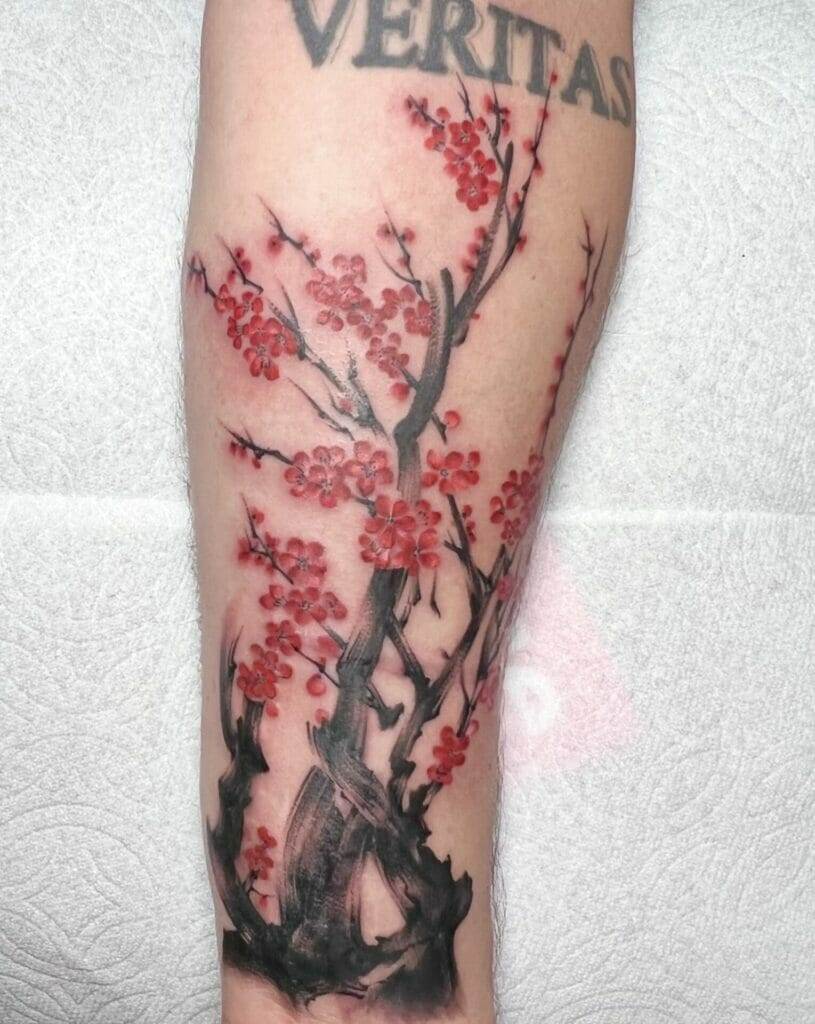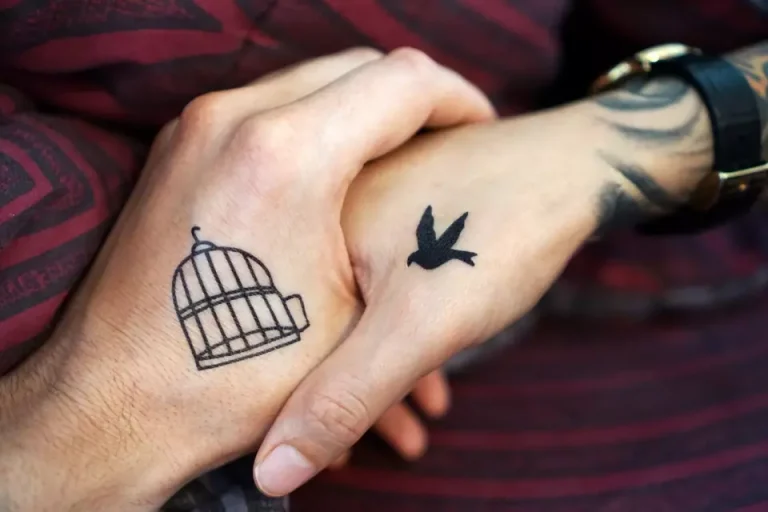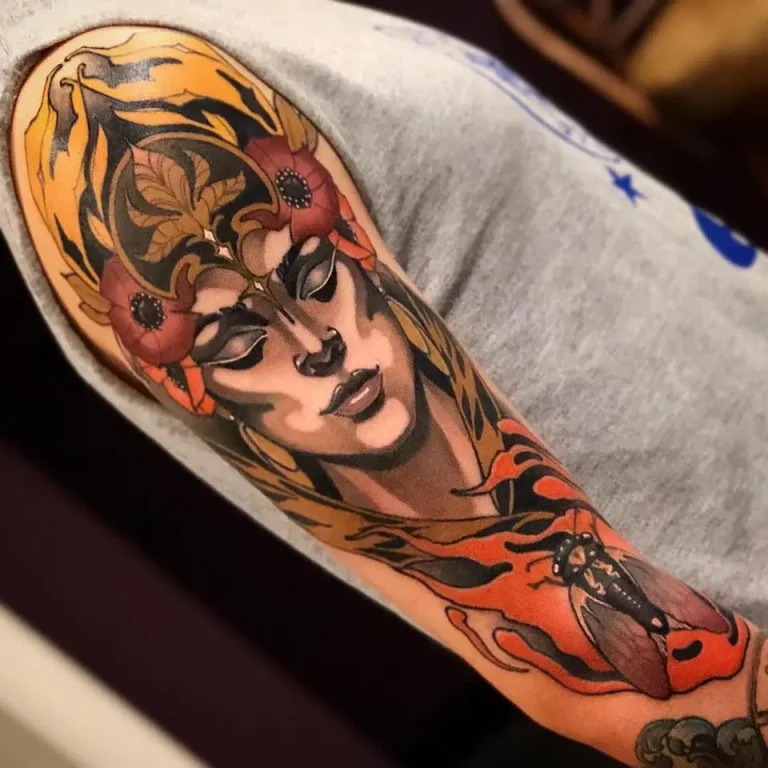Tattooing has a long and rich history in Asia, dating back thousands of years. In many Asian cultures, tattoos hold deep cultural and spiritual significance, serving as a form of self-expression and a way to connect with one’s heritage. Understanding the symbolism behind Asian tattoos is essential to appreciating their cultural significance.
Throughout history, tattooing in Asia has been practiced for various reasons. In ancient times, tattoos were used to mark social status, signify tribal affiliations, and serve as protective talismans. Over time, tattooing evolved to become an art form, with intricate designs and symbolism that reflect the beliefs and values of different Asian cultures.
Symbolism plays a crucial role in Asian culture, and this is evident in their tattoo designs. Each symbol carries its own meaning and represents different aspects of life, such as beauty, strength, perseverance, and enlightenment. By understanding the symbolism behind Asian tattoos, we can gain a deeper appreciation for the artistry and cultural significance they hold.
The Cherry Blossom: A Symbol of Beauty, Renewal, and Transience
In Japanese culture, the cherry blossom holds great significance. It is a symbol of beauty, renewal, and transience. The cherry blossom season is eagerly awaited each year in Japan, as it marks the arrival of spring and the fleeting nature of life.
The cherry blossom tattoo is often chosen by those who appreciate the beauty of life but also understand its impermanence. It serves as a reminder to live in the present moment and cherish every fleeting experience. The delicate petals of the cherry blossom are often depicted in vibrant colors, creating a visually stunning tattoo that captures the essence of this symbol.
The Dragon: A Powerful and Mystical Creature in Asian Mythology
Dragons have a long history in Asian culture and mythology. They are seen as powerful and mystical creatures, often associated with strength, wisdom, and good fortune. In many Asian countries, dragons are revered and considered to be symbols of protection and prosperity.
Dragon tattoos are popular among those who seek to embody the qualities of the dragon. They can represent strength, courage, and the ability to overcome challenges. The design of a dragon tattoo can vary greatly, with some opting for a more traditional and intricate design, while others choose a more modern and stylized interpretation.
The Koi Fish: A Symbol of Perseverance, Transformation, and Good Fortune
In Chinese culture, the koi fish holds great significance. It is a symbol of perseverance, transformation, and good fortune. The koi fish is known for its ability to swim against the current and overcome obstacles, making it a powerful symbol of determination and resilience.
Koi fish tattoos are often chosen by those who have faced adversity in their lives and have come out stronger on the other side. The vibrant colors and flowing movements of the koi fish make for a visually striking tattoo that captures the essence of this symbol.
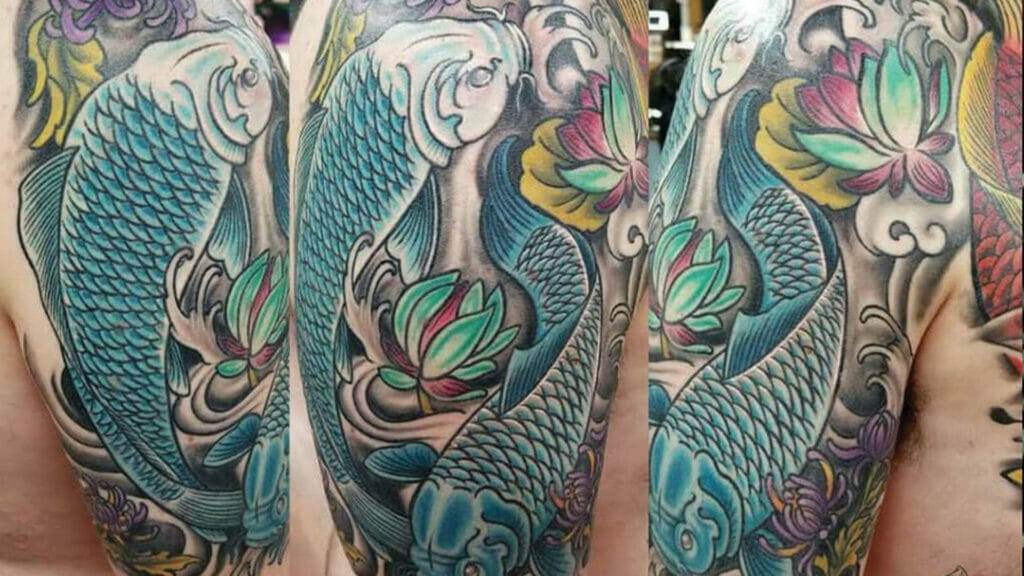
The Lotus Flower: A Representation of Purity, Enlightenment, and Rebirth
The lotus flower holds great importance in Buddhist culture. It is a representation of purity, enlightenment, and rebirth. The lotus flower grows in muddy waters but emerges clean and beautiful, symbolizing the journey from darkness to light.
Lotus flower tattoos are often chosen by those who seek spiritual enlightenment or have overcome difficult circumstances in their lives. The intricate petals of the lotus flower make for a visually stunning tattoo that captures the essence of this symbol.
The Phoenix: A Symbol of Resurrection, Rebirth, and Immortality
In Chinese mythology, the phoenix is a powerful symbol of resurrection, rebirth, and immortality. It is believed to rise from the ashes and be reborn anew. The phoenix represents the cycle of life and the ability to overcome adversity.
Phoenix tattoos are often chosen by those who have experienced significant life changes or have overcome difficult circumstances. The vibrant colors and intricate details of the phoenix make for a visually stunning tattoo that captures the essence of this symbol.
The Tiger: A Representation of Strength, Courage, and Protection
In Korean culture, the tiger holds great importance. It is a representation of strength, courage, and protection. Tigers are seen as powerful and majestic creatures, often associated with bravery and resilience.
Tiger tattoos are often chosen by those who seek to embody the qualities of the tiger. They can represent strength, courage, and the ability to protect oneself and others. The design of a tiger tattoo can vary greatly, with some opting for a more realistic depiction, while others choose a more stylized interpretation.
The Geisha: A Symbol of Feminine Beauty, Grace, and Elegance
In Japanese culture, the geisha holds great significance. Geishas are highly skilled entertainers who are known for their beauty, grace, and elegance. They represent the epitome of femininity and are admired for their talent and poise.
Geisha tattoos are often chosen by those who appreciate the beauty and grace of the geisha. They can represent femininity, elegance, and the pursuit of perfection. The design of a geisha tattoo can vary greatly, with some opting for a more traditional depiction, while others choose a more modern interpretation.
The Samurai: A Representation of Honor, Loyalty, and Discipline
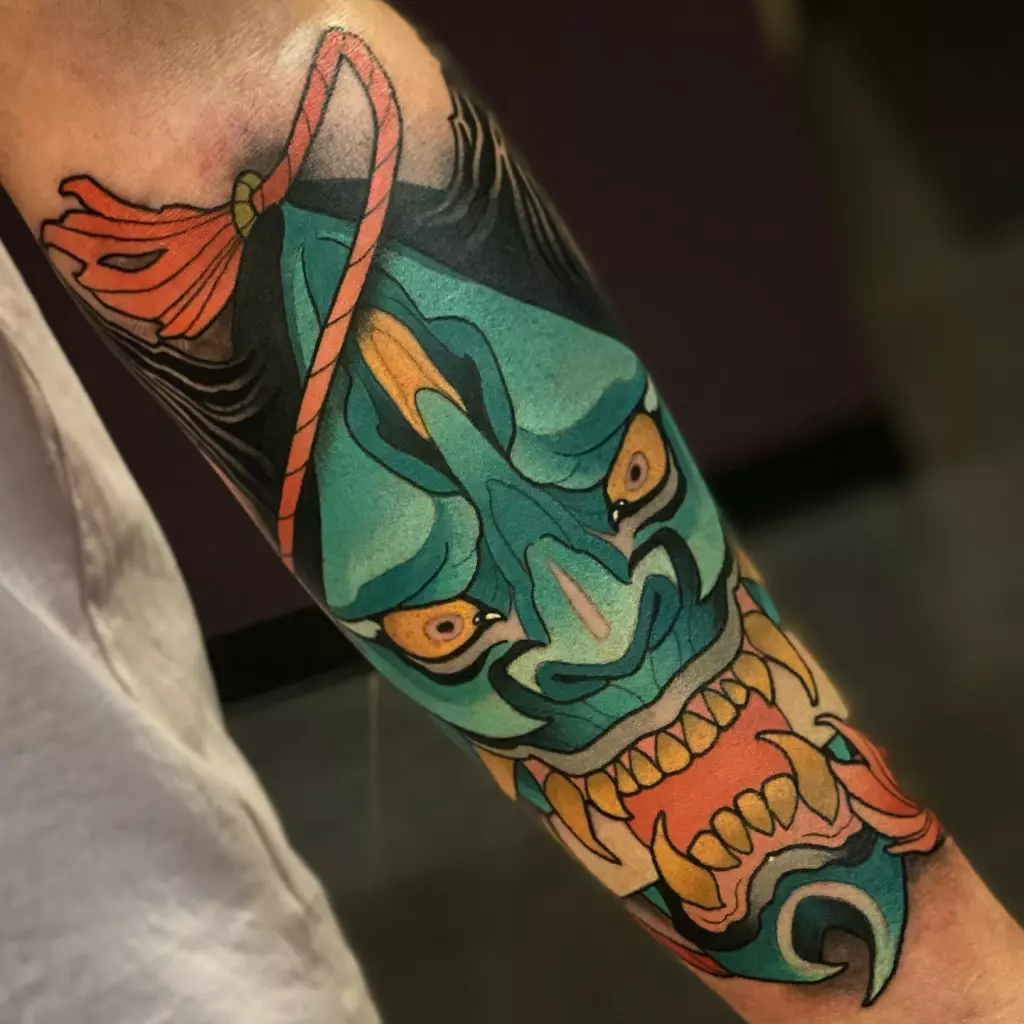
In Japanese culture, the samurai holds great importance. Samurai were highly skilled warriors who lived by a strict code of honor and loyalty. They represent discipline, courage, and the pursuit of excellence.
Samurai tattoos are often chosen by those who admire the qualities of the samurai. They can represent honor, loyalty, and the pursuit of personal growth. The design of a samurai tattoo can vary greatly, with some opting for a more traditional depiction, while others choose a more modern interpretation.
The Buddha: A Symbol of Enlightenment, Compassion, and Inner Peace
In Buddhist culture, the Buddha holds great significance. The Buddha is a symbol of enlightenment, compassion, and inner peace. Buddhists strive to follow the teachings of the Buddha and seek to attain enlightenment and liberation from suffering.
Buddha tattoos are often chosen by those who seek spiritual enlightenment or wish to embody the qualities of the Buddha. They can represent compassion, wisdom, and the pursuit of inner peace. The design of a Buddha tattoo can vary greatly, with some opting for a more traditional depiction, while others choose a more modern interpretation.
Embracing the Rich Symbolism of Asian Tattoos
Asian tattoos hold deep cultural and spiritual significance. Each symbol carries its own meaning and represents different aspects of life. By understanding the symbolism behind Asian tattoos, we can gain a deeper appreciation for their cultural significance.
It is important to approach Asian tattoos with respect and understanding. These symbols are not just decorative designs but carry deep meaning for those who choose to get them inked on their bodies. By embracing and appreciating the rich symbolism of Asian tattoos, we can celebrate and honor the diverse cultures that have given rise to these beautiful art forms.

